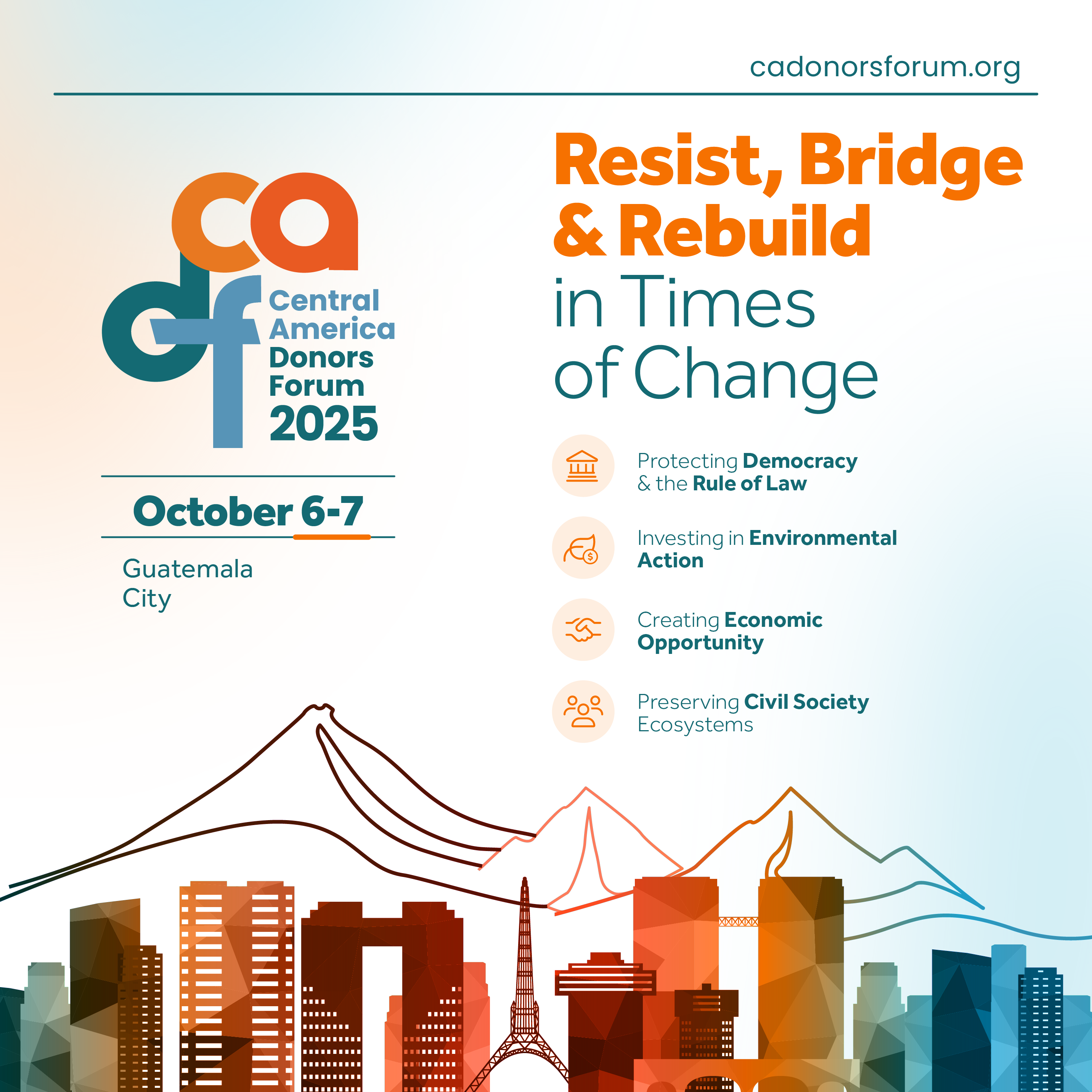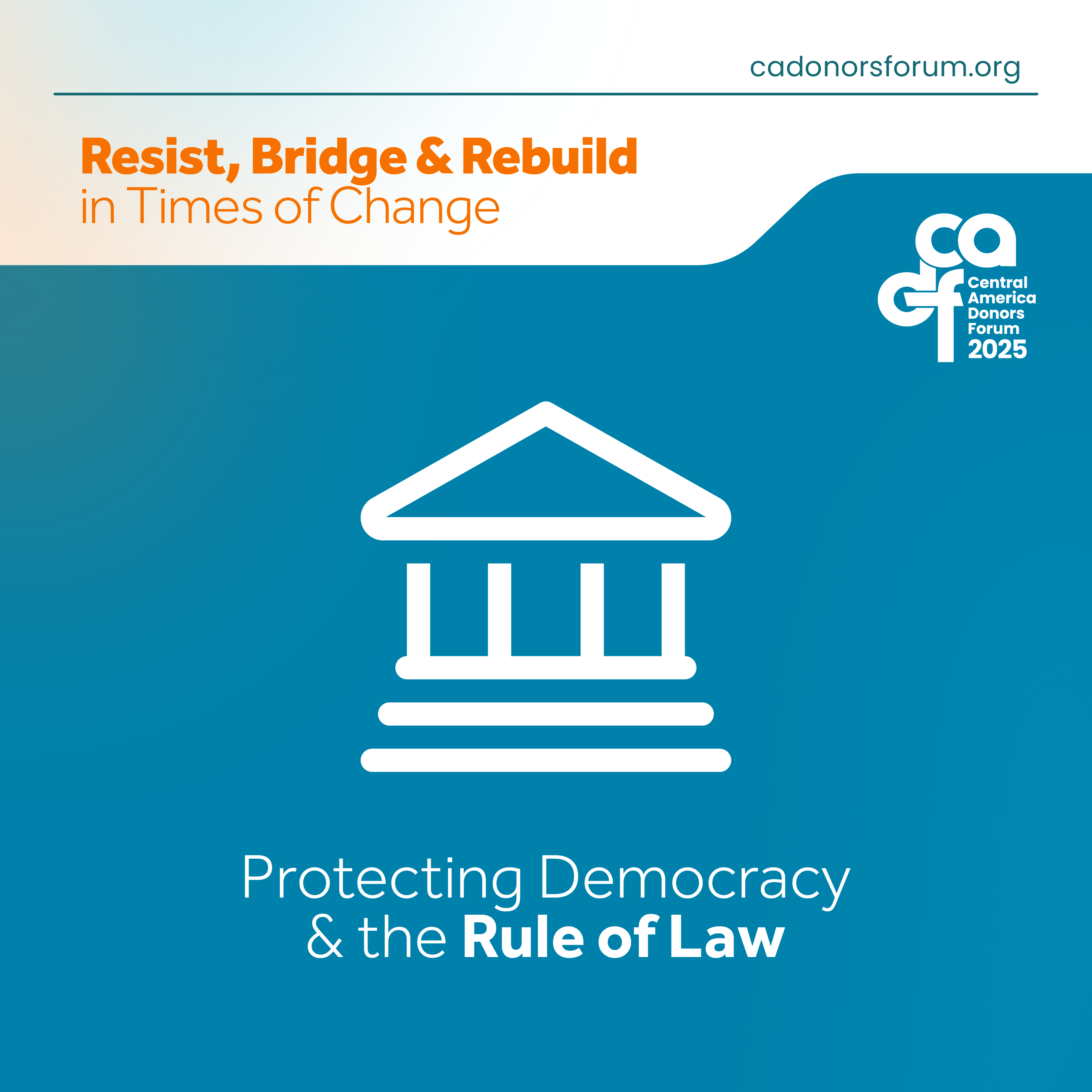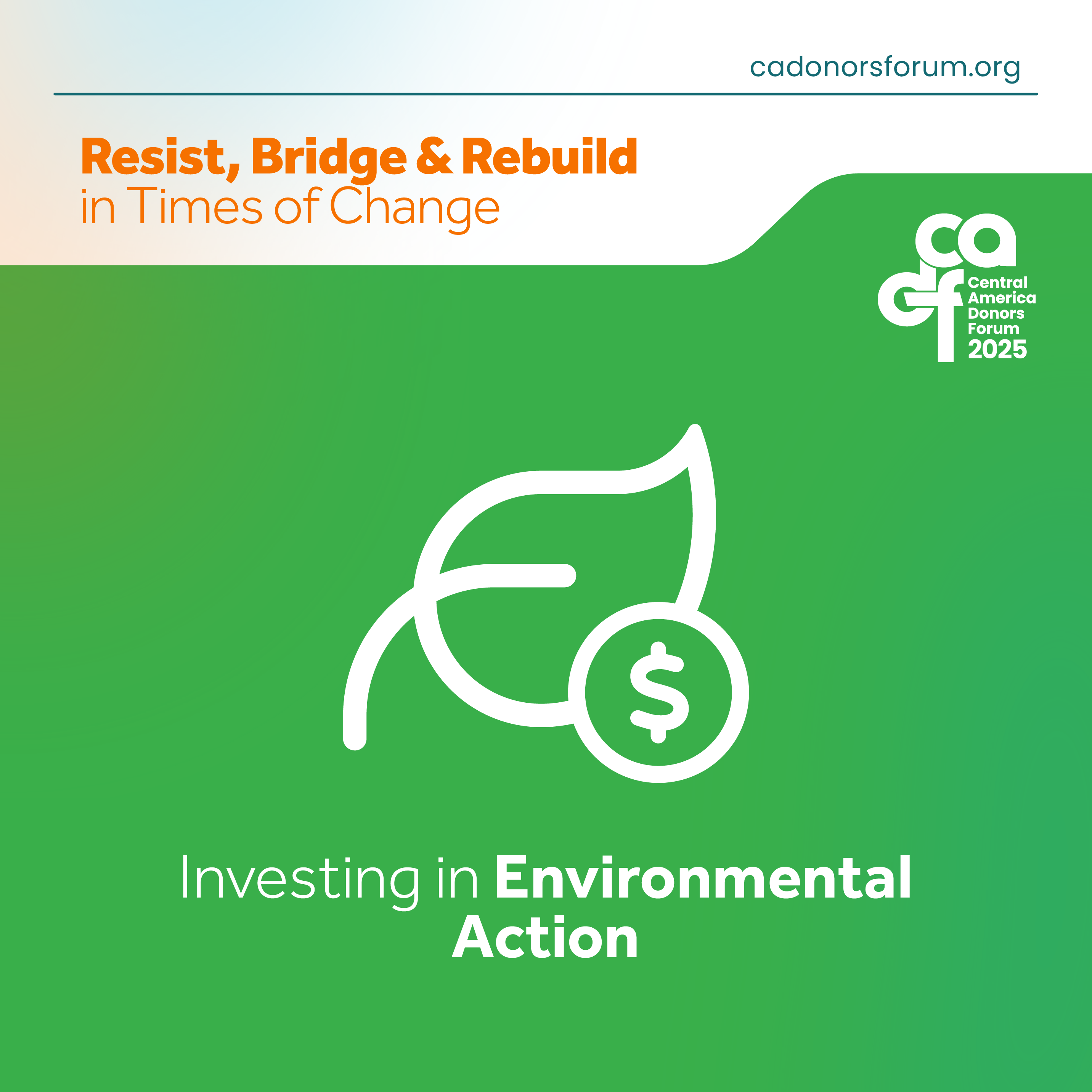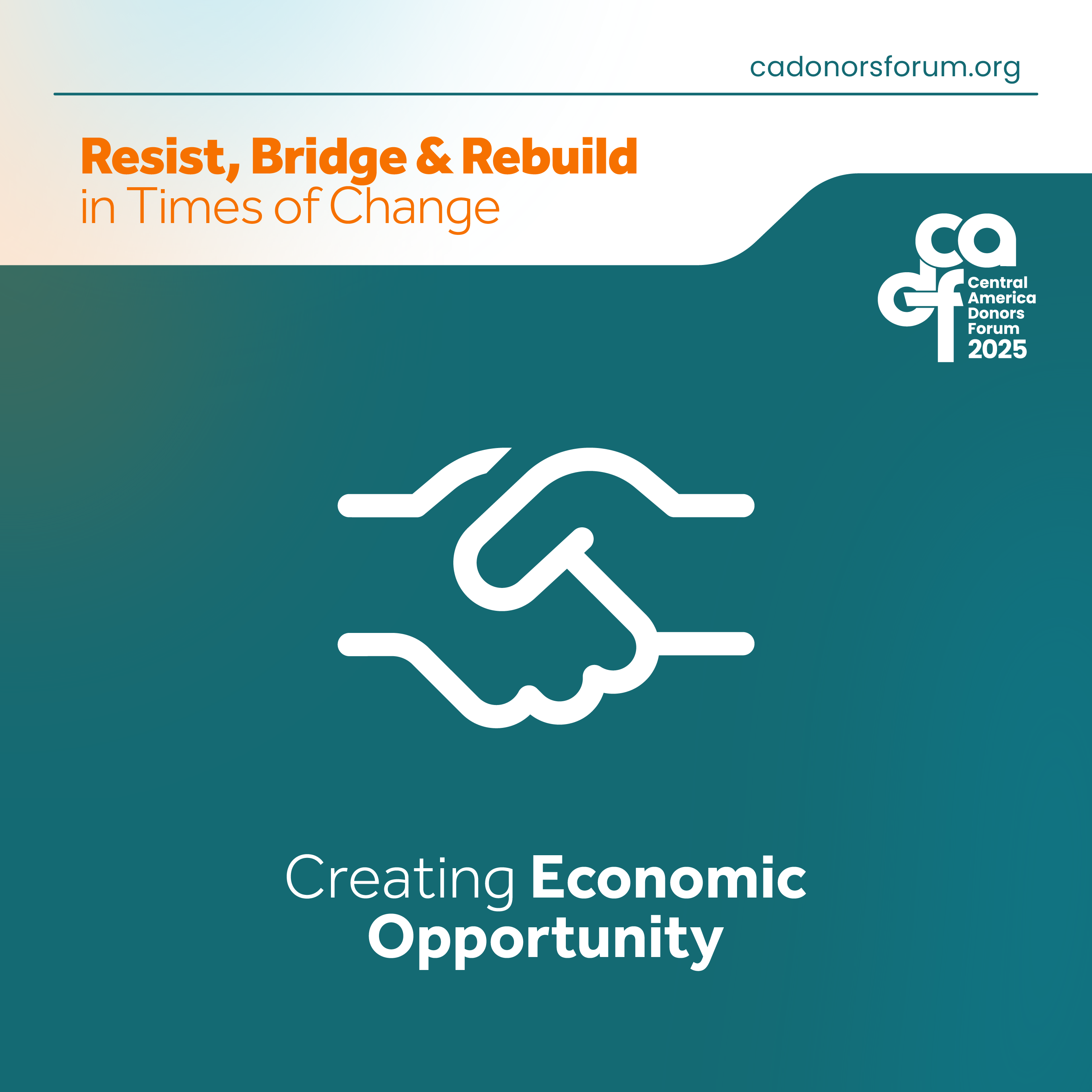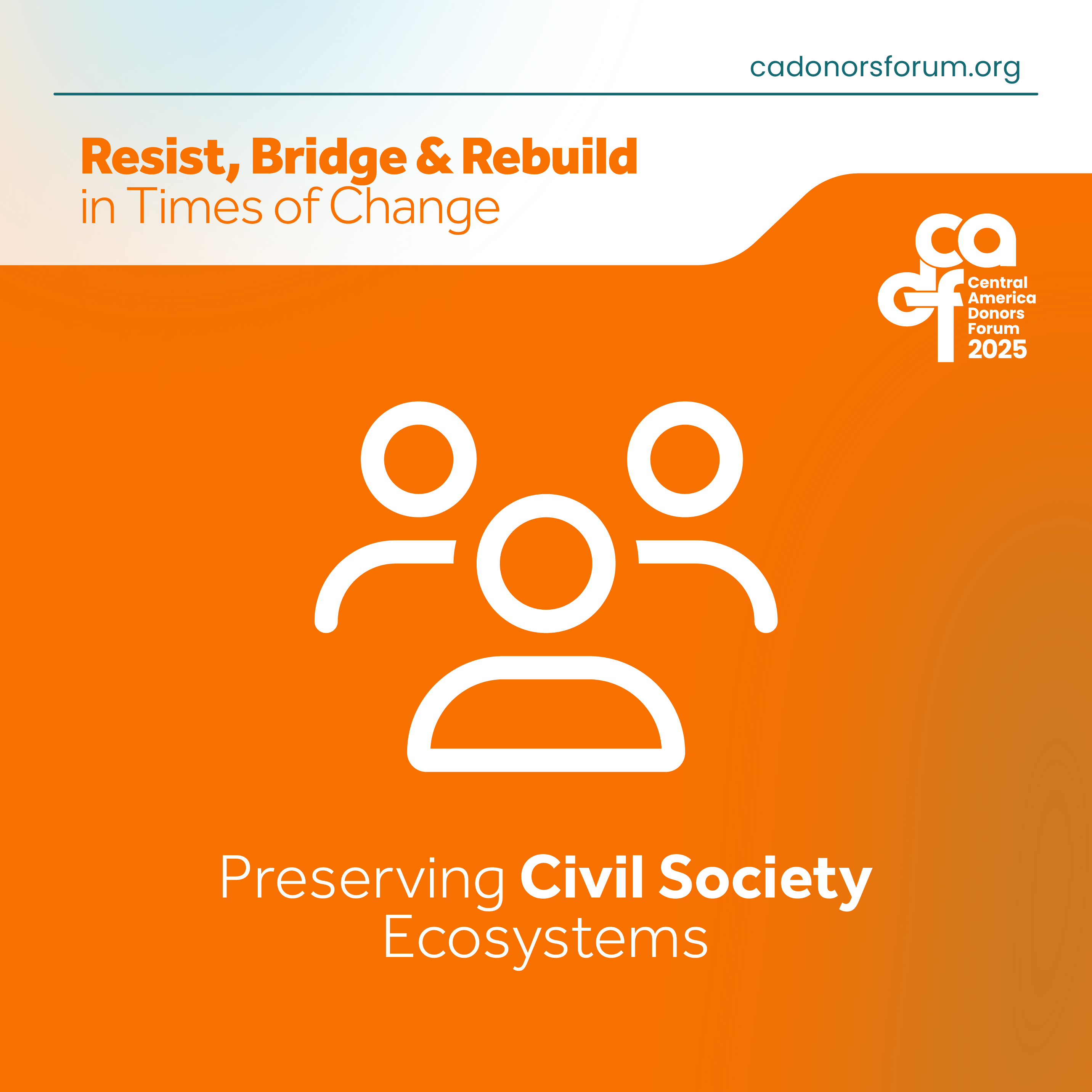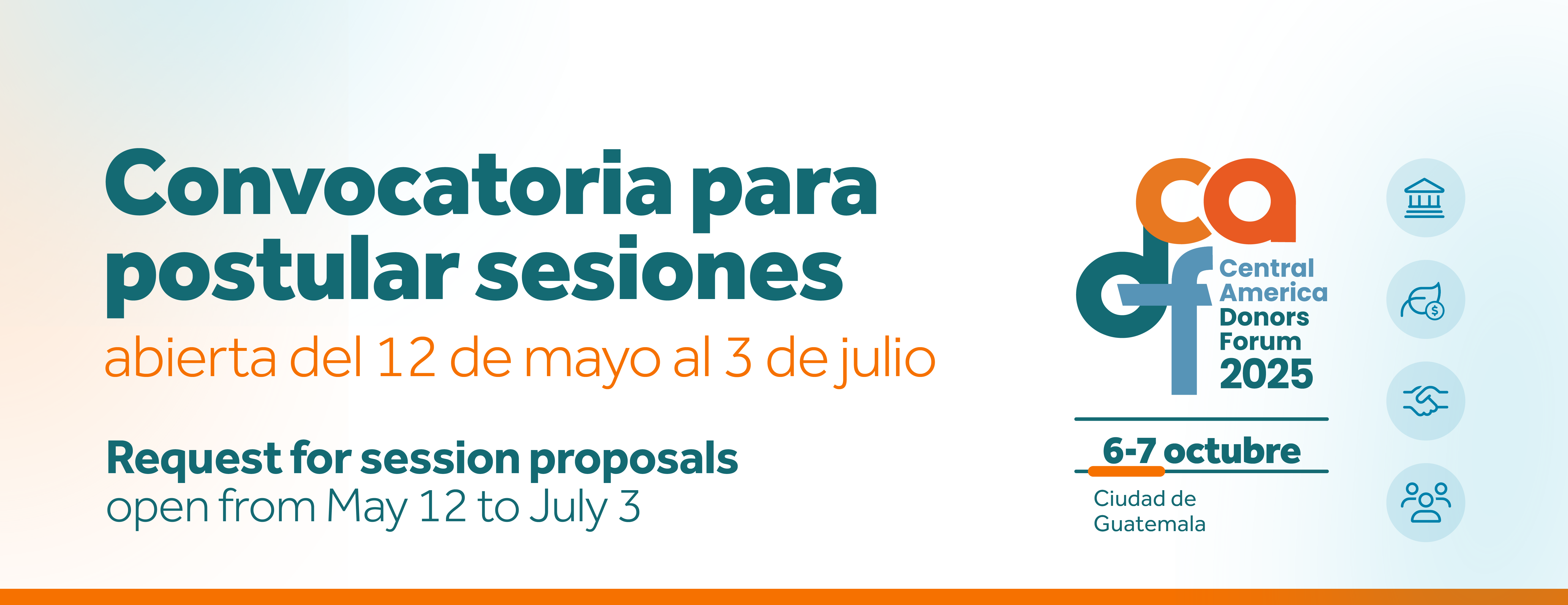
Propose a Session or Site Visit
Seattle International Foundation invites you to submit a session or site visit proposal for the 2025 Central America Donors Forum. Join this unique community of experts and changemakers on October 6-7 in Guatemala City, Guatemala and take part in developing strategic adaptation in Central America.
Craft your session proposal to align with this year’s theme, Resist, Bridge & Rebuild in Times of Crisis and one track, including: protecting democracy and the rule of law; investing in environmental action; creating economic opportunity, and; preserving civil society ecosystems.
Organizations may submit only one session application and one site visit application. Multiple session proposals will not be considered due to high demand. If multiple session proposals are submitted, SIF will review only the first proposal.
Applications for session and site visits will be accepted on a rolling basis until Thursday, July 3, 2025.
Propose a sessionHow to Submit
Sessions
We are now accepting the following proposals via Google Forms:
• panel
• workshop
• strategic roundtable
• fishbowl
• lightning talk
In short, we want participants to leave CADF 2025 with a deeper understanding of the key issues facing Central America, new insights into promising solutions and development models, and new contacts for future collaboration. Deadline: Thursday, July 3, 2025.
Click here to submit a session proposal (English form)
Haga clic aquí para proponer una sesión (formulario en español)
Site Visits
In addition to sessions, we’re seeking off-site visits to leading local programs and organizations in and near Guatemala City, Guatemala. We invite you to propose your organization as a site visit via a separate application. Deadline: Thursday, July 3, 2025.
Click here to submit a site visit proposal (English form)
Haga clic aquí para proponer una visita de campo (formulario en español)
Additional Information
Session Recommendations
We strive for speakers and attendees to get the most out of their CADF 2025 experience. The selection committee will prioritize proposals which provide a comprehensive understanding of the critical issues facing Central America, propose bold and innovative solutions and development models, and address the need for strategic adaptation. The selection committee will prioritize proposals that:
• Include diverse perspectives (e.g. regional, gender, cross-sector, approach etc.)
• Highlight successful, recent and innovative partnerships, or failures and strategies to improve upon setbacks
• Allow for audience engagement and discussion
• Provide reliable data and case studies
• Share useful tools and frameworks
• Highlight partner perspectives
Selection Criteria
The Central America Donors Forum is dedicated to showcasing panelists and speakers with diverse perspectives, backgrounds and expertise. Proposals will be evaluated using the following five criteria:
• Compelling: The session, comprised of experts in their fields, informs on key issues and motivates participants to act
• Cutting-Edge: The lens through which the session examines key issues gives credibility to original concepts, initiatives and solutions
• Collaborative: The session encourages concrete collaboration and partnership between organizations or sectors
• Inclusive: The session gives voice to marginalized perspectives through a diverse group of speakers
• Focused: The subject matter of the session is relevant and fits within the outlined theme and tracks
Speaker Policies
Discounted speaker tickets will include a 20% discount. SIF provides a limited number of scholarships for speakers who are otherwise unable to attend. Visit our Frequently Asked Questions page for more information.
Register
Register for CADF 2025 on Eventbrite. Access code available via most recent CADF newsletter.
Register for CADF 2025Key Dates
May 12
Open request for session and site visit proposals

July 3
Request for session and site visit proposal ends

July 21-31
Session acceptances sent

August 26
Agenda released



